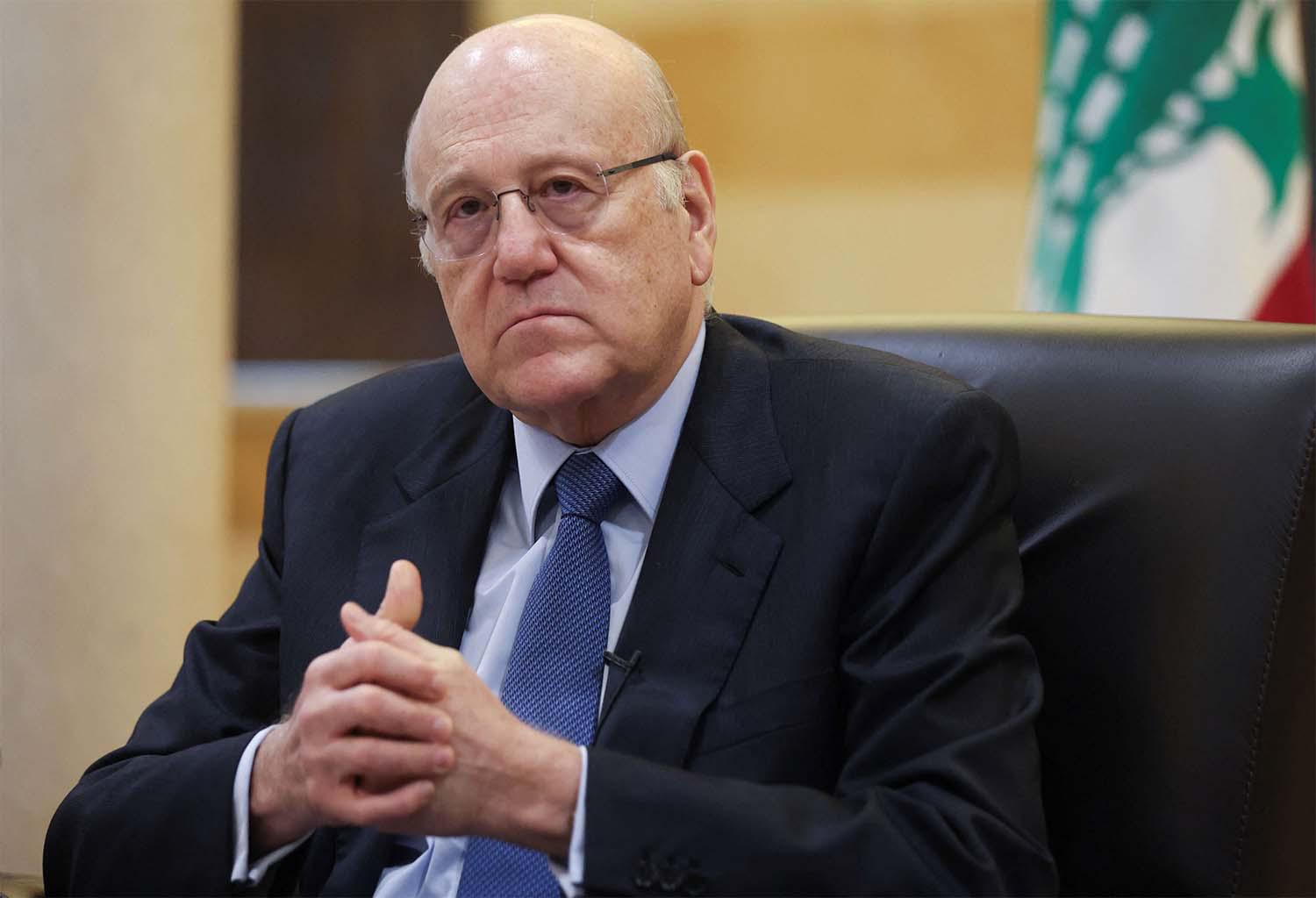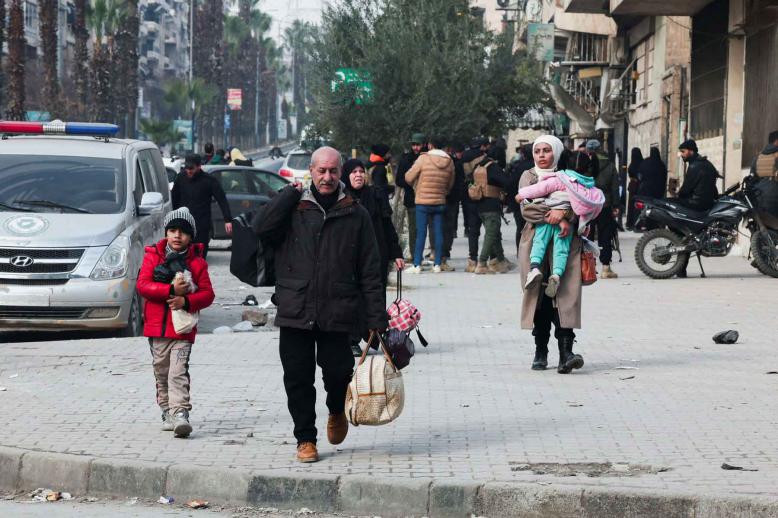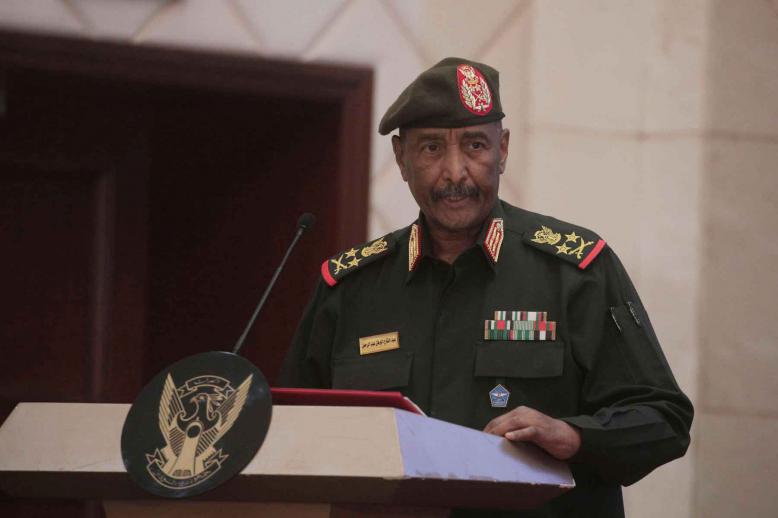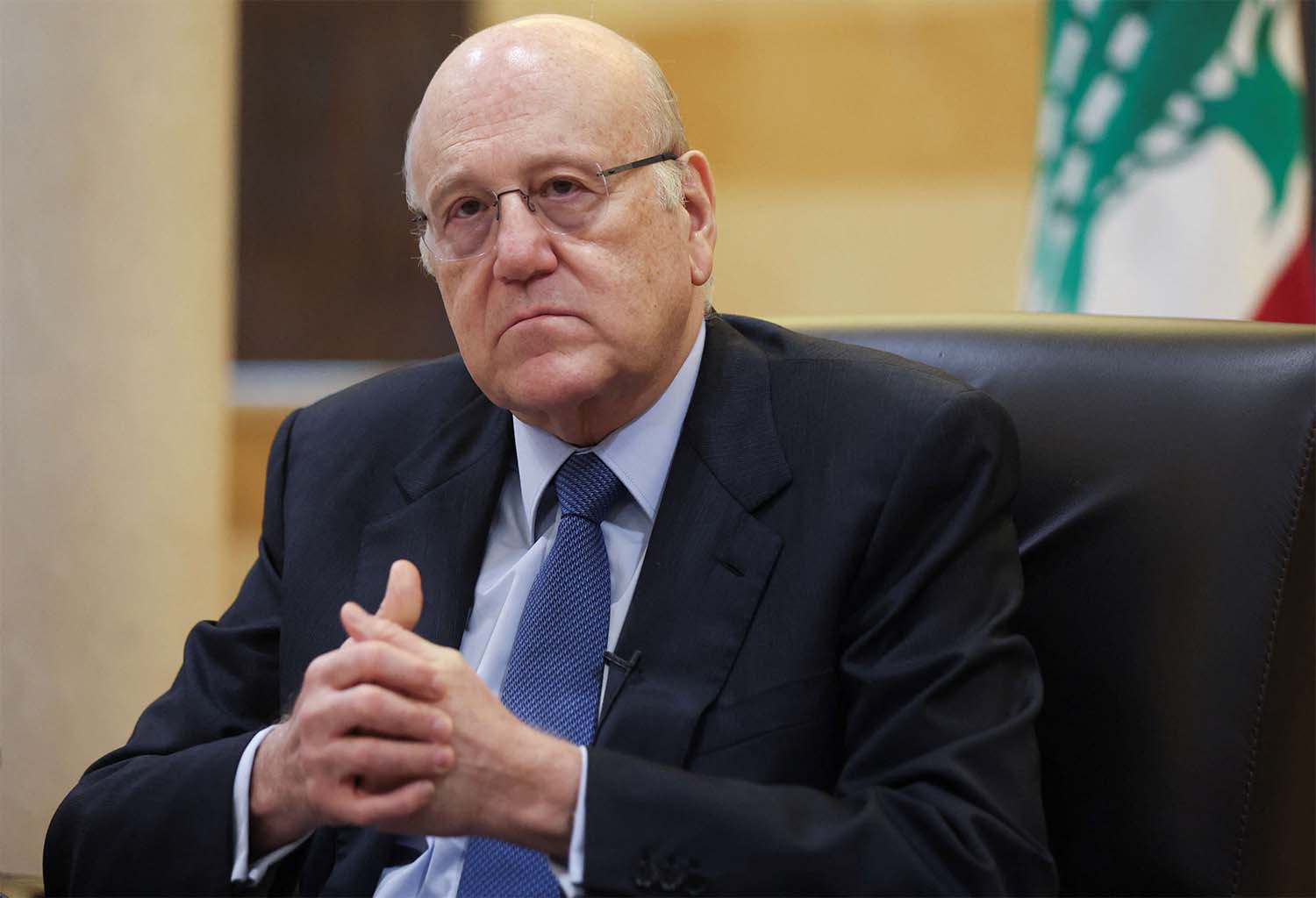Mikati says talks on ending Lebanon-Israel border fighting to begin in Ramadan
BEIRUT - Indirect talks to end hostilities along the Lebanese-Israeli border will begin during the Muslim holy month of Ramadan which starts next week, Lebanon's caretaker prime minister Najib Mikati said on Tuesday.
Powerful Lebanese armed group Hezbollah and Israel have been exchanging fire for nearly five months in parallel with the Gaza war, prompting diplomatic efforts aimed at staving off an escalation.
In an interview on Tuesday night with local Lebanese broadcaster Al Jadeed, Mikati said long-term stability on the southern border required Israel to stop violating Lebanon's territorial integrity and to return territories it occupies all along the border.
He said Lebanon's parliament speaker Nabih Berri - who is close to Hezbollah - was studying a proposal suggested verbally by US envoy Amos Hochstein, who was in Beirut on Monday.
Mikati said the proposal centered on how to fully implement United Nations Security Council Resolution 1701, which ended the month-long war fought in 2006 between Hezbollah and Israel.
It calls for a withdrawal of non-state armed actors from southern Lebanon and a deployment of up to 15,000 Lebanese army troops. Lebanon has accused Israel of violating the resolution more than 30,000 times, and says it would be ready to implement it fully.
Mikati said Hochstein's proposal also included "a development plan for south Lebanon," that would be backed by Arab states and other countries outside the region.
He said Lebanon still had questions about the proposal and had some preliminary comments on it, and that either he or Berri would speak to Hochstein within the next 48 hours, particularly to learn Israel's position as the U.S. envoy traveled on to Tel Aviv from Beirut.
Mikati said the timeline for implementation was "elastic."
Hezbollah is one of several Iran-aligned groups around the Middle East that have entered the fray since Oct. 7, when Hamas militants stormed Israel from the Gaza Strip, triggering a fierce Israeli land, air and sea offensive on Gaza.
Hezbollah, an ally of Hamas, has said its campaign aims to support the Palestinians under Israeli bombardment.
Mikati told Reuters in an exclusive interview last week that a halt to fighting in the Gaza Strip would trigger indirect talks to end hostilities along Lebanon's southern border.
But in Beirut on Monday, Hochstein warned that a truce in Gaza would not necessarily automatically bring calm to Lebanon's southern border and he warned about the risks of an escalation of the conflict.






